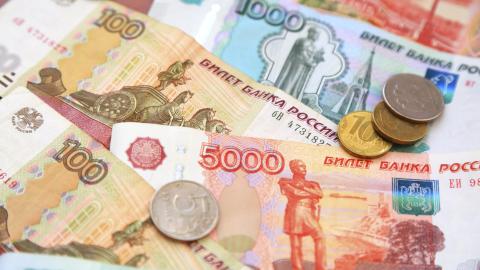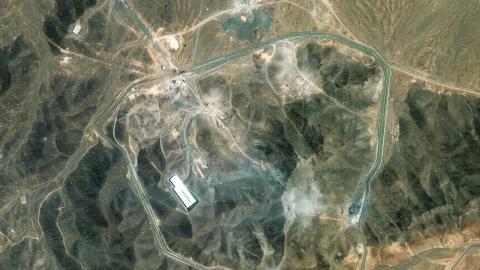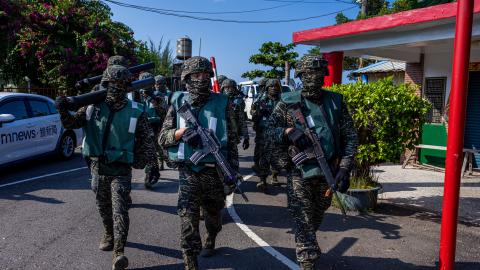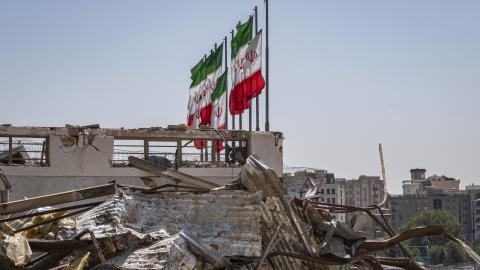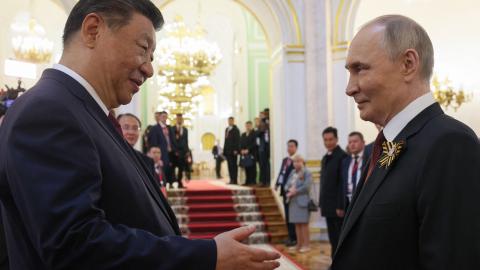This afternoon, Rep. Frank Wolf (R., Va.), co-chairman of the Tom Lantos Human Rights Commission, will hold congressional hearings to probe Morocco’s mass deportation of over 100 American and other foreign expat Christians earlier this spring. One immediate concern is whether the U.S. should suspend its pledge of nearly $700 million in aid to Morocco under its Millennium Challenge Corporation compact (MCC), since the state is no longer meeting the compact’s eligibility indicators of “ruling justly.”
In a May 19 letter to Sec. Clinton, Wolf makes a good point:
The mandate of the MCC is based on the assumption that ‘aid is most effective when it reinforces good governance.’ Rather than making strides toward accountable and democratic governance since receiving the MCC grant, Morocco has regressed…. At a time when the United States owes more in debts and commitments than the total combined net worth of all Americans, it is unacceptable to provide $697.5 million in taxpayer dollars to a nation which blatantly disregards the right of American citizens residing in Morocco and forcibly expels American citizens without due process of law.
The famously moderate Muslim government shocked religious-freedom observers when, beginning in March, its Interior Ministry rounded up and expelled within hours dozens of Christian humanitarian and social workers, educators, and businessmen. A second wave of deportations followed in April, bringing the total to 105 Christian deportees. None was afforded due process. In violation of Moroccan law, even those Christians who had lived there for a decade or more and had deep roots in the community were escorted out of the country with only hours notice and without an explanation of charges. The prestigious George Washington Academy in Casablanca has been demonized by the media and subject to state investigations. Some are saying that a cleansing of the small, mostly foreign Christian community is underway.
Precipitating these deportations were accusations by a coordinated group of Muslim hardliners that the Christians were engaged in proselytizing. Morocco’s Ambassador Aziz Mekouar explained to the U.S. Commission on International Religious Freedom this week that conversion to Christianity is not a crime in Morocco, but proselytizing is -- though the country’s penal code fails to specify what this precisely means. For example, it is unclear whether giving inducements or bribes to convert is a necessary element, or whether simply answering a question about one’s faith is also against the law.
What is clear is that Morocco is feeling the pressure of rising Islamic extremism. Seven thousand Muslim religious leaders recently signed a document describing the work of Christians within Morocco as “moral rape” and “religious terrorism,” according to Christianity Today. Some religious-freedom observers believe that outrage against the Christian aid workers was manufactured for political reasons that originated within the Organization of Islamic Conference. The ire of some state members of that Saudi-based religious association was aroused after Morocco expelled Wahhabis and Shiites. In a tacit acknowledgement that the mass deportations were aimed at placating Muslim extremists, the ambassador explained the deportations of the Christians as necessary for maintaining “public order.”
Morocco still likes to boast of being an open, inviting country, unscathed by the extremism and violence that have engulfed other nations in the region. It has been a place where Western tourists and even retirees have been welcome, where law is based on a civil code, where churches and synagogues are allowed to be built and maintained, and where Catholic, evangelical, and Jewish schools have not only been tolerated but popular among the 99 percent of the population of 33 million that are Sunni Malikite Muslims. This reputation for tolerance is waning, though, as the country bends to OIC and other sources of Islamist radicalism. Last Ramadan, police patrolled restaurants and cafes enforcing the Islamic fast for the first time, with coercive methods reminiscent of the Saudi religious police.
The Sultan of Morocco sent a letter to George Washington at Valley Forge announcing that American ships were permitted “to take refreshments and enjoy in them the same privileges and immunities as those of other nations,” making Morocco the first country to officially recognize the new United States. It seems that King Muhhamed VI’s welcome is now far chillier. At least someone in Congress is paying attention.
